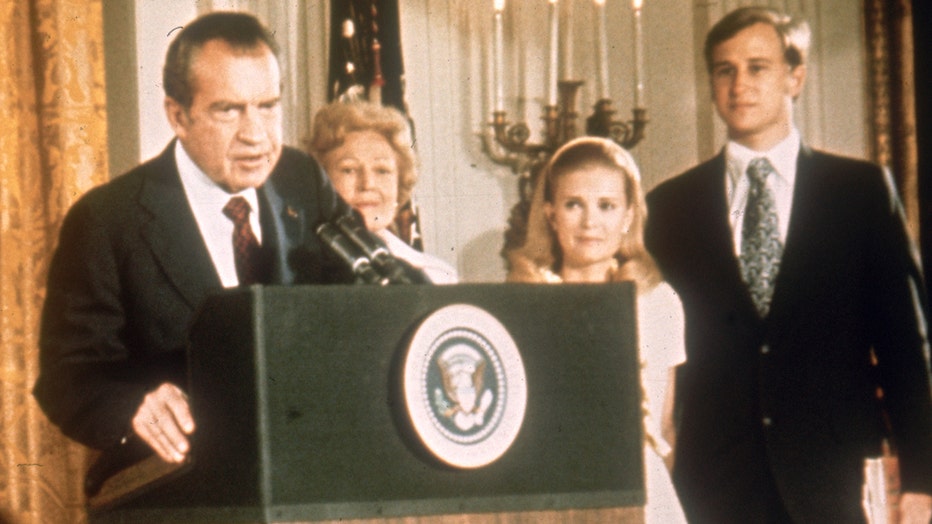50 years ago, Nixon resigns the presidency
From 1979: Nixon's legacy & political fallout
Five years after Richard Nixon's resignation, KTTV's Tony Valdez looks back at the former president's historic decision and its effect on national politics. Originally aired August 9, 1979.
Five decades ago, on August 8, 1974, then-President Richard Nixon announced his intention to resign from office – the first president in American history to do so.
"By taking this action, I hope that I will have hastened the start of the process of healing which is so desperately needed in America," he said in a solemn televised address from the Oval Office.
The next day. Nixon officially ended his term as the 37th president of the United States, and just minutes later, Vice President Gerald R. Ford was sworn in as the 38th president.
"My fellow Americans, our long national nightmare is over," Ford told the nation. A few months later, he pardoned Nixon for any crimes he may have committed while in office, explaining that he wanted to end the national divisions created by the Watergate affair.
Richard Nixon's full resignation speech
On August 8, 1974, President Richard Nixon spoke for 15 minutes as he announced that he would become the first president to resign the position.
The news came amid impeachment proceedings against the president for his involvement in the infamous Watergate scandal.
What is the Watergate scandal?
On June 17, 1972, five men were arrested for breaking into and illegally wiretapping the Democratic National Committee headquarters in the Washington, D.C., Watergate complex.
Later that year, reporters Carl Bernstein and Bob Woodward from The Washington Post discovered a conspiracy surrounding the incident, leading to the political scandal.
RELATED: From Adams to Biden: Presidential families and their scandals
In July 1973, testimony before the Senate Watergate Committee revealed that all of Nixon’s White House conversations were taped. The Supreme Court ruled that Nixon would need to provide the tapes and documents subpoenaed by special Watergate prosecutor Archibald Cox.

Richard Nixon at the White House with his family after his resignation as President. (Credit: Keystone/Hulton Archive/Getty Images)
Later that year, on Oct. 20, 1973, Cox refused to compromise on the tapes and Nixon ordered Attorney General Elliot Richardson to fire Cox. Richardson refused and resigned in protest. Then, the acting Attorney General Robert Bork fired Cox. This became known as the "Saturday Night Massacre."
Why did Nixon resign?
On Aug. 5, 1974, The "smoking gun" tape became public, where Nixon could be heard approving a proposal from his chief of staff to press the FBI to drop its investigation of the Watergate break-in six days earlier.
RELATED: Donald Trump is not the first president, in or out of office, to face legal trouble
Republicans who had intended to support Nixon in an impeachment trial abandoned him.
Just days later, on August 8, Nixon announced his resignation.
This story was reported from Los Angeles. The Associated Press contributed.

